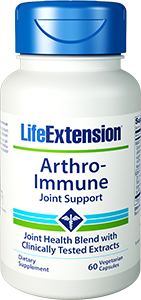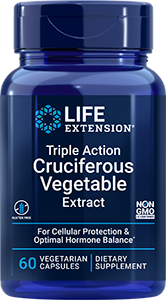| Coenzyme Q10 (CoQ10) is synthesized in humans from tyrosine through a cascade of eight aromatic precursors. These precursors require eight vitamins, which are vitamin C, B2, B3 (niacin) B6, B12, folic acid, pantothenic acid, and tetrahydrobiopterin as their coenzymes. Since the 1960s, studies have shown that cancer patients often have decreased blood levels of coenzyme Q10 (Lockwood et al. 1995; Folkers 1996; Ren et al. 1997). In particular, breast cancer patients (with infiltrative ductal carcinoma) who underwent radical mastectomy were found to have significantly decreased tumor concentrations of CoQ10 compared to levels in normal surrounding tissues. Increased levels of reactive oxygen species may be involved in the consumption of CoQ10 (Portakal et al. 2000). These findings sparked interest in the compound as a potential anticancer agent (NCCAM 2002). Cellular and animal studies have found evidence that CoQ10 stimulates the immune system and can increase resistance to illness (Bliznakov et al. 1970; Hogenauer et al. 1981; NCCAM 2002). CoQ10 may induce protective effect on breast tissue and has demonstrated promise in treating breast cancer. Although there are only a few studies, the safe nature of CoQ10 coupled with this promising research of its bioenergetic activity suggests that breast cancer patients should take 100 mg up to 3 times a day. It is important to take CoQ10 with some kind of oil, such as fish or flax, because dry powder CoQ10 is not readily absorbed. In a clinical study, 32 patients were treated with CoQ10 (90 mg) in addition to other antioxidants and fatty acids; six of these patients showed partial tumor regression. In one of these cases the dose of CoQ10 was increased to 390 mg and within one month the tumor was no longer palpable, within two months the mammography confirmed the absence of tumor. In another case, the patient took 300 mg of CoQ10 for residual tumor (post non-radical surgery) and within 3 months there was nonresidual tumor tissue (Lockwood et al. 1994). This overt complete regression of breast tumors in the latter two cases coupled with further reports of disappearance of breast cancer metastases (liver and elsewhere) in several other case (Lockwood et al. 1995) demonstrates the potential of CoQ10 in the adjuvant therapy of breast cancer. | Interactive Life Extension Magazine® May, 2011 issue now online! 
This e-issue of Life Extension Magazine® is extraordinarily easy to use, easy-to-navigate … with the same flip-the-page feeling you get from your printed copy, plus a few extra advantages. You can choose to search out a topic or keyword. Skim quickly. Skip ahead. Even order products. Now all that convenience is right at your fingertips. Three million needless cancer deaths
A new Oxford University analysis conclusively shows that low-dose aspirin slashes overall cancer death risk by 20%. Optimize your sex hormone status
Newly published studies reveal how SHBG interacts with testosterone and estrogen–and how maturing individuals can use this blood test to optimize their sex hormone status. The longevity factor in the Japanese diet
Scientists are zeroing in on native seaweeds in traditional Japanese diets whose constituents induce anti-aging benefits that go beyond anything used in Western societies. Natural ways to thwart a stealth killer
A Cambridge research team recently made a discovery validating the power of certain nutrients to combat chronic hypertension. Branched chain amino acids grow new mitochondria
In an animal model, BCAAs increased life span in part through mitochondrial biogenesis–the spontaneous growth of new mitochondria. |
















